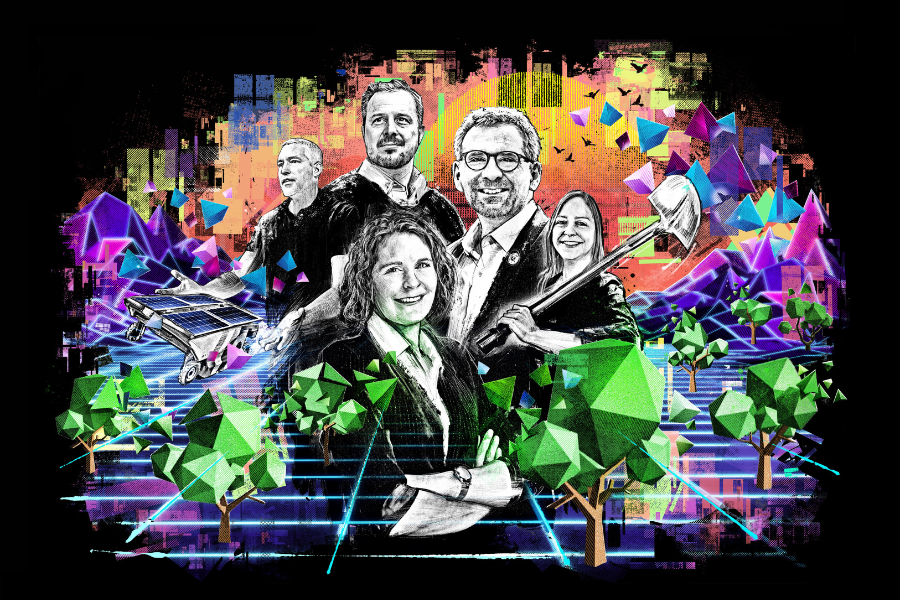Many of our members, thought and industry leaders in Switzerland, have shared how they handle the extraordinary situation we face today. They are stepping up once again to show that every challenge can be overcome. But only if we are proactive, creative and collaborate not only as organizations but also as citizens of this world. As a top priority, virtually all companies have taken proactive measures to protect their employees and halt the spread of COVID-19.
Keeping a physical distance is one of the best ways to stay healthy. While banning handshakes is now a common practice some organizations go beyond and ask their employees to work remotely. I see no reason why people who can work remotely should have to go to the office – social distance is ultimately what’s going to save us.
The concept of remote work isn’t new, however the speed at which companies are equipping their employees with the necessary tools is unprecedented. However, we mustn’t forget that there’s a large group of people, including knowledge-workers, who are afraid of technology or don’t know how to use it. Now more than ever it is the responsibility of all of us to help those who aren’t as digitally literate and to continually educate ourselves.
However, remote work and digital collaboration is not available for all employees, especially manual labor workers. That’s why flexible work hours and alternating shifts are on the rise. Not only does this practice allow traveling to and from work outside of peak hours, it also exposes workers to fewer people during their shift, which lessens the risk of contagion.
The technology needed for that to happen, has been around for a while. This allows meetings and even some events to be held in virtual settings. Is this the push some organizations need to rethink excessive meeting culture? Is COVID-19 what could establish digital tools and remote work in organizations?
None of us can predict the future but I do expect 2020 to be the year of digitalization. More companies than ever before will introduce tools that foster connection and collaboration online. The workforce as a whole will have to not only tolerate but wholly accept digital tools. COVID-19 will be the largest driver of digitalisation in history. Not only in Switzerland but worldwide.
Self-serve, buffet style Cafeterias are common among larger organizations. After all they are cheap and easy to maintain and allow employees to control exactly how much of what they consume. From the very beginning of the COVID-19 outbreak in Switzerland, organizations like Bain & Company and Ringier have adjusted the way they serve food. To minimize the risk of contamination they have committed to serving individually packaged goods only.
The topic of hygiene will continue to be relevant. I am expecting to see a change in our lifestyle and therefore new opportunities for business – after all, the only thing stopping a virus is proper hygiene and social distance.
Again, physical distance is what will save us. Companies like Ringier have made layout changes to their cafeteria from the very beginning of the outbreak in order to minimize physical contact. This practice is now adopted to offices all over the world. Open floor plans, once all the rage, are now being questioned.
Right now is not the time to travel: Neither for business nor for pleasure. That’s tough for many corporations as big decisions have always been made in physical meetings. International companies are fostering exchange and connection with other employees and their organization through personal interaction. We are now forced to rethink this practice and find alternatives. But are there any? We are human beings. We need human connection. And while video meetings are excellent tools to foster connection, they will not be able to replace real-life human connection. That’s why I predict that air travel will pick up again rather quickly after we have survived the COVID-19 pandemic.
Start-ups are agile, the rest of us are not. Or are we? While the first statement might have held some truth just a few weeks ago, big corporations are now forced to rethink and accelerate their decision making process. Time is a luxury we don’t have these days.
It is remarkable how quickly large companies have responded to the crisis. That goes to show that all participants of the economy can make quick decisions if needed. If large corporations can keep making quick decisions, not only today but 12, 18 and even 24 months down the line, we will emerge out of this crisis stronger and more innovative than ever.
Stay healthy,
Nicolas






